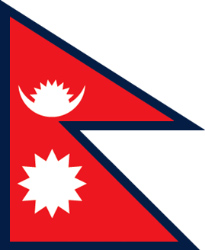Nepal's turn of tide:country moves towards republic
By Margarita Snegireva. Political crisis in Nepal that led to postponement of the elections, finished by former communist rebels’ uniting with the government. Nepal ’s monarchy will also be abolished.

No date has been set for the ex-rebels, usually referred to as Maoists, to rejoin the government. They left in September, demanding the immediate abolition of the monarchy and changes to the election system.
An agreement for them to rejoin has been signed, however, by leaders of the seven main political parties - including the Maoists - said Arjun Narsingh of Nepali Congress, the Himalayan country's largest party.
The 23-point pact said the leaders also agreed that once a constituent assembly is elected by mid-April, its first meeting will declare Nepal a republic state and end its centuries-old monarchy. That change had been widely expected for months.
The constituent assembly would rewrite Nepal's constitution and hammer out the details of a new political structure for the country, the AP reports.
Elections for a Constituent Assembly will be held in Nepal by 12 April 2008 at an unspecified date after having been postponed from the earlier dates of 20 June 2007 and 22 November 2007. This assembly will draft a new constitution and will therefore also decide on the fate of the Nepalese monarchy. There will be around 17.5 million eligible voters. The Election Constituency Delimitation Commission recommended the following number and distribution of seats: 240 members would be elected through a proportionate electoral system, 240 members through election in constituencies and 17 on recommendation by the Council of Ministers. It is likely that the election will be postponed, as the Election Commission fears that the time is insufficient to adequately prepare the election.
All of the parties have been designated election symbols; for instance, the Maoists have hammer and sickle, the UML a sun and the Nepali Congress a tree.
The Carter Center will send 50 short-term election monitors, and the European Union will send 60 short- and long-term election monitors.
The second delay, on 5 October, occurred because the Maoists demanded that a republic be declared before the elections and that a full proportional system be used in the election instead of a mixed system. A compromise was agreed to on 4 November 2007: the election will use a fully proportional system, but the republic will only be declared immediately after the Constituent Assembly election.
On November 4, the majority in the interim parliament voted in favour of a Maoist proposal calling for a fully proportional election system.
On 15 December, the government tabled an amendment to the constitution. This amendment moves the deadline for Constituent Assembly elections from 15 December 2007 to 12 April 2008, and changes the membership of the Constituent Assembly: the seats for proportional representation system were increased to 335 and the members nominated by the prime minister were increased to 26 from 17. The seats for first-past-the-post elections remained at 240, making the total number 601 seats instead of the earlier 497. The word "republic" was also included, but will have to be confirmed by the Constituent Assembly.
Subscribe to Pravda.Ru Telegram channel, Facebook, RSS!


